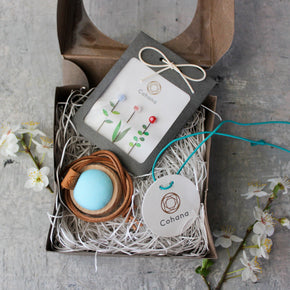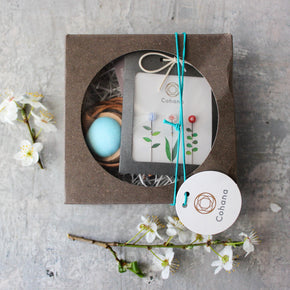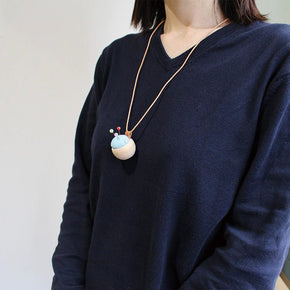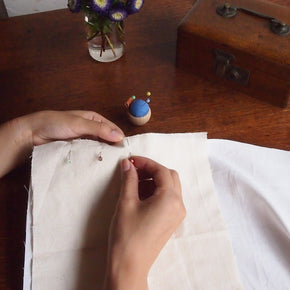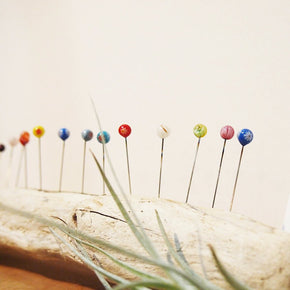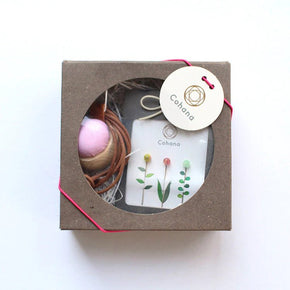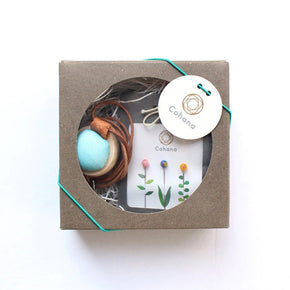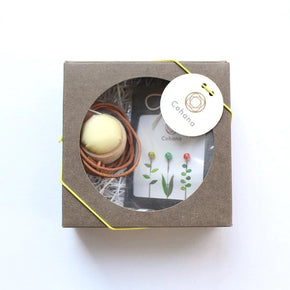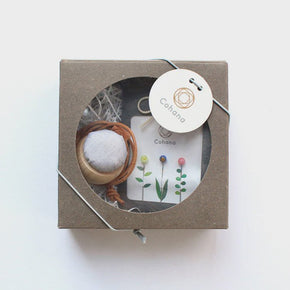Cohana Pincushion Necklace & Marking Pin Set
$60.00
A delightful heirloom gift set for devoted makers - beautiful Japanese pincushion necklace with trio of tombo-dama glass bead marking pins.
These practical pincushions are formed from a uniquely rounded base crafted from fragrant hinoki cypress from the Kii Mountains. The fabric is Banshu weave, produced in the North Harima region of Hyogo Prefecture. Distinguished by their natural texture, colour and feel, pincushions are filled with stuffing that takes pins easily and does not cause rust.Pincushions measure 33mm diameter x 35mm high.
Set includes a trio of unique Japanese marking pins featuring traditionally handcrafted "tombo-dama" glass bead heads.
Used to mark positions on fabric when sewing, each pin is crafted by hand in a small factory in Hiroshima, a town reknowned for its glass making.
The ancient tombo-dama technique, established in the Nara period (from 710 A.D) is used to make each pin's floral design motif, known as "millefiori" meaning a thousand flowers.
Set of three superior quality pins, ensuring smooth sewing, each pin measures 35mm long. Tombo-dama beads measure 5mm diameter, pins are 0.5mm thick. Each pack contains three different floral designs, randomly selected.
Beautifully packaged, a thoughtful heirloom gift for sewers and makers.
Choose from four pincushion colours.
Package size: 107mm wide ×45mm high ×107mm deep.
Handmade in Japan by Cohana.
Cohana is a Japanese brand of high quality handmade tools created by KAWAGUCHI Co., Ltd. in collaborations with local industries and artisans, utilising the traditional skills, experience and knowledge of developing handicraft tools cultivated over many years since its establishment in 1953.




















